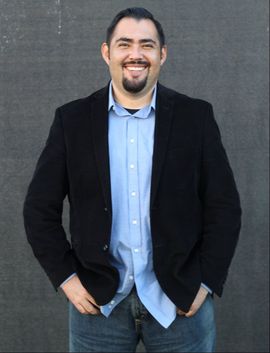Eastern Washington University is pleased to welcome Alfredo Carlos, PhD, as our new interim director of Chicana/o/x Studies. Carlos came to Eastern this summer after serving as executive director of the Foundation of Economic Democracy in Long Beach, California.
For Carlos, who was born in Mexico, the position at Eastern represents an opportunity to give back to Latinx and other underrepresented populations. Specifically, he’s excited to help students navigate the complex society they live in today.

For instance, in school, Carlos believes young people are generally well taught on social inequalities, how people suffer and different forms of oppression. “Which is empowering,” he says. “But it’s not enough.” Carlos wants to work with students not just on problems, but on solutions. “How do we teach them how to go back into their communities and come up with solutions? Also, social justice entrepreneurship: What does that look like?” he says. He adds that he plans to collaborate with other campus partners to “develop programs that don’t just teach Chicano studies, but teach people how to work with Latino populations.”
In addition, Carlos would like to teach students not just to critically think, but to take ownership of critical issues in a way that empowers them to make changes in society. He wants students to be passion-driven.
Carlos says he never thought that he would leave Long Beach, but that he couldn’t pass up the opportunity to come to a place like Eastern and help develop the Chicana/o/x Studies program.
While still a child, Carlos arrived in the U.S. with his undocumented-immigrant parents. The family settled in the Harbor Region of Los Angeles, where Carlos grew up. As an undergraduate, he attended the University of California, Santa Barbara. He then went on to complete a master’s degree in political science at the University of California, Long Beach, and a doctorate in political theory and American politics at the University of California, Irvine. He has since gone on to found a non-profit advocacy organization and written a book, The Latino Question, which was named by the American Political Science Association as “Best Book in Latino Politics.”
Today Carlos says he’s especially proud to be an Eagle, one who arrives at EWU having “accomplished the things that I have, as a formerly undocumented working class person who grew up in poverty.”

